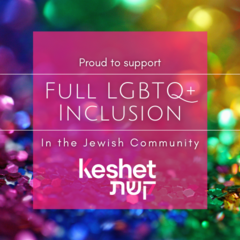January 2023
01/01/2023 02:00:08 PM
| Author | |
| Date Added | |
| Automatically create summary | |
| Summary |
“I have a voice. My voice is powerful. My voice can change the world.”
These words by Jewish singer-songwriter Elana Arian ran through the L’Taken Seminar that six of our Hebrew High students attended in early December. L’Taken, organized by the Religious Action Center of Reform Judaism (RAC), takes place in Washington, DC, over a long weekend (Friday–Monday). Over the course of the weekend, four hundred or so teens gathered to learn about the legislative process, issues of concern, and the work of the RAC. To cap off the weekend, the teens wrote speeches that they then presented during lobbying meetings in their legislators’ offices. Through this experience, the teens start to identify issues about which they’re passionate and develop the skills to effectively communicate the change they want to see to their elected officials.
A number of years ago, one Representative, Danny Davis from Chicago (IL-6), was planning to speak about gun violence prevention from the floor of the House of Representatives. Coincidentally, a group of teens from L’Taken came to lobby in his office earlier that afternoon. He was so impressed by their speech that he discarded the speech he was planning to deliver and, instead, read the words of these teens from the floor of the House. It brings me to tears every time I hear it. Even before they can vote, L’Taken shows our teens that their voices are powerful.
Our parashiyot (Torah portions) in January also show us that our voices are powerful. We can bring blessing or curse, hope or despair, kindness or harm. We read of Jacob blessing his grandsons, Menashe and Ephraim, but I often wonder if his deathbed “blessings” of his twelve sons caused more pain than necessary. It’s no wonder to me that the ten older sons feared Joseph’s retribution after Jacob’s death—Jacob spoke so harshly to them on his deathbed it must have seemed like permission for Joseph to get his revenge. Joseph, at least, recognized his brothers’ pain and fear and reassured them that he would not cause them additional harm.
We also read of Moses, who starts off so afraid of speaking to Pharaoh directly that he requires his brother Aaron to speak for him. Over time, though, he recognizes the strength of his own voice—and the power of God behind him—as he argues with Pharaoh again and again. Before he can be effective, Moses has to learn to trust himself and know that his cause is just. He also needs the Israelites’ support and buy-in, which does not come easily. His voice is powerful, but it takes time to build the trust necessary to move forward together.
Our ancestors struggled with effective communication and trust and so do we. Over the last few months, it has become clear that we hold divergent priorities, expectations, and assumptions about congregations and Jewish life in general and Temple Beth El in particular. We noticed that people may use the same word but have very different understandings of what it means in practice. Among these words were “safety,” “inclusion,” “tikkun olam,” and “politics.” Many of us don’t agree on the definitions, interpretations, or implications of these terms, let alone how they should be incorporated into the life of our synagogue. We raise our voices to promote our positions, but there’s not enough trust for everyone to hear and understand.
To help us start to understand each other, a planning team has been working with an organization called Building Bridges of Hope to develop a congregation-wide Reflective Structured Dialogue (RSD). If you want more information about RSD, you can find it here.
Thu, October 30 2025
8 Cheshvan 5786
Today's Calendar
Friday Night
: 5:30pm |
| Candle Lighting : 5:37pm |
: 5:45pm |
: 6:30pm |
Shabbat Day
: 9:00am |
: 10:00am |
Upcoming Programs & Events
Oct 30 |
Oct 30 |
Nov 2 |
Nov 2 |
Nov 5 |
This week's Torah portion is Parashat Lech L'cha
| Shabbat, Nov 1 |
Candle Lighting
| Friday, Oct 31, 5:37pm |
Erev Hanukkah
| Sunday, Dec 14 |
Stay In The Know!
Get emailed our weekly Shabbat Shalom newsletters,
monthly bulletins, and/or committee announcements:

Privacy Settings | Privacy Policy | Member Terms
©2025 All rights reserved. Find out more about ShulCloud






